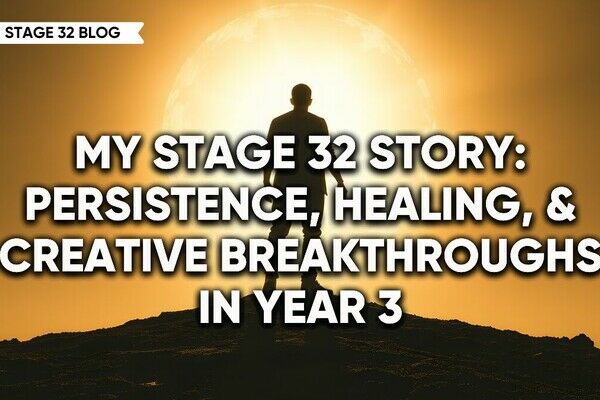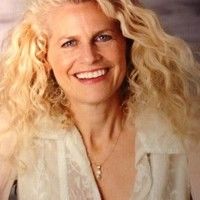The Role Of An AD (Assistant Director) On Set!
Once on set, I think of the 1st AD as the present, planning and keeping the day moving forward. At the same time, the 2nd AD is the future, planning and spreading information for the following days.
Before Filming Begins
The 1st AD gets the script and breaks it down into a schedule with all the puzzle pieces – Working closely with the director, everything having to do with the script is decided - locations, cast availability, equipment, day vs. night, sets, props, stunts, special effects, and more. With all that information compiled, the question becomes- what can be accomplished each day?

A Day In The Life Of A 1st AD & 2nd AD On Set
1st AD
At call time, the 1st gives a safety meeting, talking about the day’s work, the location notes, and any safety issues that everyone should be aware of.
The cast for the first scene of the day is brought to the set for a rehearsal with the director and once blocking is decided, there is a rehearsal for the crew. Once complete, the cast goes back to finish getting ready while the director, 1st AD, and DP discuss the setups and elements of the scene that are needed. The camera and lighting crew set up the first shot. The day has begun.
When the set is lit and cameras are in place, the cast returns, and shooting for the day begins. The 1st AD announces everything is ready, brings in the cast, and calls for another rehearsal. If adjustments are needed, they happen at this time. Then cameras roll, with the 1st AD calling “Roll”, sound calls “Speed”, cameras get slated and the director calls “Action!”
Once the master/first shot is complete, with the director’s approval, the day continues with the shots needed to complete the scene, which is called "coverage".
When 1st scene is complete, the 1st AD announces moving on to the next scene of the day. If there is a set move, whether on location or stage, the 1st AD has announced this before the completion of the last scene so all of the crew have the heads up. Having discussed scenes in prep with the director and DP, the 1st AD is responsible for estimating how long each scene will take to shoot and having the next set of actors ready.
If there are other elements needed, such as stunts, special effects, or visual effects, all of those departments are given the times to arrive to do their part for the day.
If there is a company move to another location, transportation gets ready to load equipment and shuttle cast and crew. All of this has been pre-discussed and planned with the best course of action to make the move happen efficiently. Within the day, after 6 hours, there is a lunch break. After lunch, the cast and crew return to finish the day's work.

2nd AD:
Meanwhile, the 2nd AD is planning for the following day. With the guidance of the 1st AD's schedule and information from prep, a callsheet for the next day is created.
The 2nd AD checks with all departments as to their needs for the following day. The 1st AD approves or adjusts the callsheet before it's finalized. If future elements need checking on or planning, the 2nd AD will follow up with the appropriate parties for those plans. The 2nd AD will also check in with the 1st throughout the day and monitor the rest of the staff to ensure that things are running smoothly.
The 2nd 2nd
Along with the 1st and the 2nd AD, there is a 2nd 2nd AD, who usually works on set with the 1st AD to place the background actors and to assist as needed.
At the production base camp, where the cast gets ready, there is an additional AD to run what happens there – Hair, Makeup, and Costume departments are all here getting the cast and the background actors ready.

In A Perfect World...
The above outline of a day in the life, is what happens if there are no wrenches thrown into the plan.
The ADs need to always be prepared if the plan goes awry. The weather can change, an actor can be sick or late, a costume might get stained…the list is endless and some things seem like simple fixes but some drastically change what was planned for the day. Together with the producer, director, writer, and other department heads a new plan gets constructed on the spot. It’s the job of the Assistant Directors to spread the information to everyone to keep the day moving forward.
Making movies and TV efficiently is all about great prepping and planning and keeping the flow of information moving to every department. The ADs are the primary source of the information for on-set questions. ADs may not appear to be the most creative part of movie making but they are the creative planners and problem solvers to help the creatives get their parts done efficiently.
Becoming An Assistant Director
There are various ways to become an AD, my experience is to get into the Directors Guild of America but even if you're not in the guild, there is much to learn to be a good Assistant Director. You can apply to the DGA Training Program in both Los Angeles and New York, and if chosen, this program finds you work on shows for 400 days as a trainee to gain experience.
Working as a Production Assistant with the ADs on various shows is another great way to observe and learn the job of an AD. Stage 32 Certification offers a Production Assisting Master Certification course! You can find that and all their other Certification courses HERE. Once you become Master Certified through Stage 32, you will be entered into a global database searchable by film commissions, streamers, studios, production companies, independent producers, and financiers for work-placement opportunities around the world.
Let's hear your thoughts in the comments below!
Got an idea for a post? Or have you collaborated with Stage 32 members to create a project? We'd love to hear about it. Email Ashley at blog@stage32.com and let's get your post published!
Please help support your fellow Stage 32ers by sharing this on social. Check out the social media buttons at the top to share on Instagram @stage32 Twitter @stage32 Facebook @stage32 and LinkedIn @stage-32
| Stage 32 Presents: Meet the Producers from this Year’s Cannes In-Competition Films! |
| The Secrets To Hiring A Great Crew |
Search Stage 32 Blog
There are now 4035 blog posts for you to enjoy. Search them all by tags below.
Acting, Advice, Cinematography, Coffee & Content, Composing, Contests, Distribution, Featured, Filmmaking, Financing, Inspirational, Networking, Producing, Screenwriting, Success Stories, Tips, Trending,Relevant Tags
Recommended Articles

How Modern Franchises Became Our New Religion

Want Success in the Entertainment Industry? Start Writing Your Own Narrative

Stage 32 Featured at the 43rd Torino Film Festival!

Insider Intel: 2026 Predictions

My Stage 32 Story: Persistence, Healing, & Creative Breakthroughs in Year 3

7 Life Hacks For Creatives

Happy Thanksgiving From Stage 32: We Are Thankful For YOU

Coffee & Content: Why Your Pitch Needs to Be Human

Coffee & Content: Opening Doors & Taking Control of Your Creative Path







